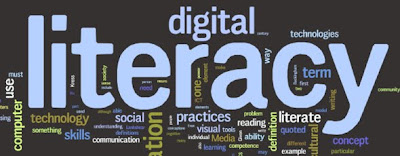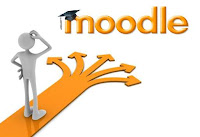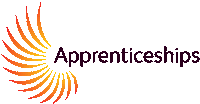With the number of tablet users on the increase (especially since Santa’s visit!) I’m increasingly asked about any iPad apps that I can recommend. I currently have only free apps on my own iPad but a number of our team have bought ones which they find quite useful. To keep this post short, below I’ve shared details of some of the free ones we use and in a future post will post a list of some of the paid ones.
(Debbi, I hope this is enough to get you started!)
Free apps for the IPad: 
1.
Ideas Sketch - An easy and simple to use mind mapping tool. You can create numerous ideas and return to edit them as and when you wish. The app allows you make notes and select different colour schemes for different strands of thought / ideas. Ideas can be imported into other apps, e.g. pages, saved to photos or emailed to other people.
2.
Dragon Search - A way to search online content on your iPhone using your voice. Simply speak your search queries and get simultaneous results from a variety of top websites and content sources
3.
Dragon Dictation - Dragon Dictation is a voice recognition application that allows you to easily speak and instantly see your text or email messages. It’s supposed to be up to five times faster than typing on the keyboard. Using this you can also dictate status updates directly to your Social Networking applications (Facebook and Twitter) or send notes and reminders to yourself….all using your voice.
4.
iBrainstorm - This is collaborative / productivity app designed to capture thoughts and ideas using virtual post-it notes (on a virtual corkboard) to which comments can be added using the keyboard.
5.
IQ Gym - IQ Gym is a mathematical educational game. The user must solve mathematical questions within a time-limit to get to the next level.
6.
Dropbox – An easy and free way to sync and share your files online and across computers.
7.
Lockbox - LockBox lets you store and protect sensitive info such as credit card numbers, bank accounts, passwords, pin numbers, private notes, and any other secret information on your iPhone or iPod Touch.
8.
SugarSync - This application requires you to download software to your computer and set up a free account with SugarSync. Once you have done this you transfer the files you want to access into your “Magic Briefcase”. Once this has been done you can use your 3G iPhone or wireless enabled iPad to access these files.
9.
BBC News - Mobile version of the BBC News website.
10.
Globe - Globe for iPad is a Geography app which shows the countries of the world on a 3D globe - you can manipulate the globe with the normal iPad gestures — drag your finger or use a rotate gesture to rotate the globe; pinch to zoom in and out.
11.
Wikipanion - Although Wikipedia can be accessed via safari, what gives this app a bit of an edge is its ability to allow you to bookmark topics and review your browsing history within the app. Wikipanion also has one or two nifty search options, e.g. Wiktionary ( allows you look up terms without leaving the page. You have to option to view in safari and there is a Tweet function for the Tweeters.
12.
Sounds right - British Council's first pronunciation chart for learners and teachers worldwide.
13.
Dictionary.com - Dictionary & Thesaurus - The free Dictionary.com app delivers trusted reference content from Dictionary.com and Thesaurus.com, including nearly 1,000,000 words and definitions and 90,000 synonyms and antonyms. No Internet connection is needed for word look-ups. The app also features audio pronunciation, voice-to-text search and Dictionary.com’s popular Word of the Day and Hot Word blog.
14.
NASA (HD) - Excellent graphics, a wealth of information about the planets as well links current space exploration and discovery. There really is a great deal lot information available here. Links are provided to NASA centres and it is possible to learn about the mission and function of all current NASA satellites.
15.
i-reflect - The app is very simple to use, (although keep in mind it does not have the same capacity as the main Institute for Learning site) IFL members can create a thought or activity asset which can be added to your reflect portfolio.
16.
FeedlerRSS - RSS feed reader, which syncs very nicely with Google Reader.
17.
The Telegraph (News) - free for a limited period in partnership with Audi. The app brings you the editors' selections from the daily newspaper – from reporting to sports analysis and columnists.
18.
Pocket Pond - Just for fun. This app shows off the I Pad's multimedia capabilities and particularly its high quality sound.
19.
Angry Birds – (As recommended by our ACL Adviser!) - The survival of the Angry Birds is at stake. Dish out revenge on the green pigs who stole the Birds’ eggs. Use the unique destructive powers of the Angry Birds to lay waste to the pigs’ fortified castles.
20.
Solitaire – (another one from our ACL Adviser) The Solitaire game now on the iPad. With the exquisite touch screen on the iPad, you can now literally touch your cards and move them as you play the game.
PS...
21. A couple of my colleagues also recommend
Flipboard - a fast way to flip through the news, photos and updates your friends are sharing on Facebook, Twitter, Google Reader and Flickr. See your social media in a magazine layout that is easy to scan and fun to read.
__________________
Related
Wobble links:
Alternatives to the iPadThe new iPadCreating an Interactive ClassroomTo read more of Wobble
click here.












 This initiative is still open to all our supported learning providers in this region. All that is required to loan a complete set of kit for a period of six weeks is:
This initiative is still open to all our supported learning providers in this region. All that is required to loan a complete set of kit for a period of six weeks is:




 More details and full project information is now available on our supporting
More details and full project information is now available on our supporting 





